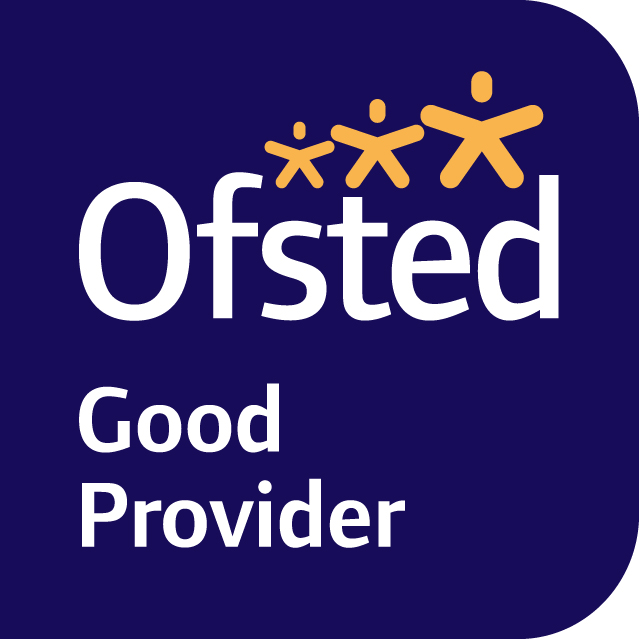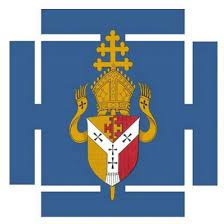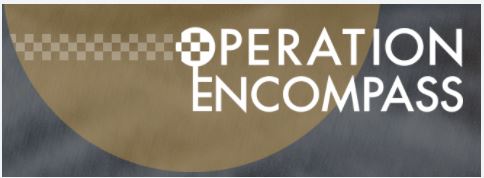Curriculum
The Curriculum at St Thomas More
Our curriculum is firmly rooted in the National Curriculum and the Early Years Foundation Stage Statutory Framework. We have created long term overviews for each year group:
Long Term Overviews 2024-2025
Curriculum Intent, Implementation and Impact
Curriculum Intent
At St Thomas More Primary School we value each child as an individual with a unique potential for learning. We strive to be an inclusive community where children grow, learn and achieve together in the presence of God. With a culture of equality, we aim to ensure that every child believes in themselves and are empowered to aim high. All that we do in school is underpinned by our values: Unity, Humility, Respect, Determination and Fairness. We link these to our British Values and these are the key drivers for our curriculum intent. Our ethos is set to remind our pupils to be proud of our achievement, encourage them to want to achieve high standards and supports our relational approach to behaviour and promote the formation of the complete person.
The curriculum at St. Thomas More Primary School is committed to meeting the requirements of the National Curriculum. Our intention is to provide opportunities for our children to develop into independent, confident, successful learners with high aspiration. We want our pupils to develop academic, moral and spiritual skills, so they can make a positive contribution to their school, parish community and the wider society by becoming global citizens ready to take their next steps into society.
How our curriculum is designed
When designing the curriculum, the following factors influence its development:
- Supporting a culture of resilience and positive mental health and wellbeing, where every child is safe, healthy, achieving, nurtured, active, respected, responsible and included
- Providing a coherent, structured and ambitious framework for teaching and learning, which is motivating, engaging and appropriate for all
- Delivering a progression of knowledge and skills from Nursery to Year 6 to ensure all pupils achieve their potential
- Ensuring new knowledge and skills build on what has been taught before and sets the foundation for future learning
- Encompassing a wide range of subjects and opportunities for academic, technical, creative and sporting excellence
- Promoting children’s spiritual, moral, social and cultural development and our commitment to and responsibility for our local community as well as the wider global community
- Strengthening children’s capacity as a learner and developing their independence, initiative, determination, and love of learning
- Equipping children with the knowledge and cultural capital they need for future success
Religious Education
We have an embedded mission across the RE curriculum, collective worship and the Catholic Life of the school. This is applied in tandem with the Virtues which are inextricably linked to and through everything we teach. At all times the school serves as a witness to the Catholic faith in Our Lord Jesus Christ. At the core of our curriculum is inclusiveness. RE lessons are faith-filled and enjoyable where each child feels they belong to our school community. All members of the school community are respected for their beliefs and expressions of faith, and all pupils are provided with every opportunity to achieve. Those responsible for Religious Education in our school prepare to give living witness to what they teach, fulfilling their professional responsibilities with regard to all that develops and enhances the life of our Catholic school.
Curriculum Implementation: How do we achieve this?
Knowledge underpins and enables the application of skill. We strive for children to know more and remember more. Recognising that knowledge and skills are intertwined, we take a cross-curricular approach where appropriate to make meaningful links across subjects and to ensure teaching and learning is relevant and meaningful and children can demonstrate their learning in a variety of ways.
Using the EYFS Statutory Framework and National Curriculum, age-appropriate progression in knowledge and skills for each core and foundation subject has been identified and mapped out across the primary phases. Priority is given to the development of English and Maths skills of all our pupils.
We have developed our curriculum to be delivered on an annual basis across the school. It has been carefully designed to capture the interests and imaginations of our children. In order to ensure that progression and balance is maintained, the programmes of study are developed into medium-term plans where key knowledge has been carefully mapped out. We aim to enhance the curriculum and provide opportunities for personal development by planning a wide range of trips, visits and visitors into school to ignite children’s interest and motivation to learn.
We use every opportunity to capitalise on connections between subjects and develop and apply all important reading, writing, speaking and listening, and maths skills in a purposeful context. To ensure that children know more and remember more, our curriculum has been sequenced to enable children to revisit previous learning to embed core knowledge into the long term memory. Lessons begin with a ‘flashback’ to support the retrieval of knowledge from previous lessons.
EYFS
We follow the Early Years Foundation Stage Curriculum, incorporating other experiences and opportunities which best meet the learning and developmental needs of the children. We believe that all children deserve an education rich in wonder and memorable experiences.
Our curriculum has been developed by subject leaders to ensure that there is clear progression of knowledge and skills from Nursery through to Year 6. Early Reading is a priority and we use Little Wandle Letters and Sounds to teach Phonics from Nursery through to Year 2 and beyond for those that need additional support.
We have placed Reading at the heart of the curriculum and we ensure that all of our pupils, no matter what their starting points are given the opportunity to learn to read as soon as possible.
Curriculum Impact: What difference does the curriculum make to our children?
At St Thomas More Catholic Primary School we strive for all pupils to achieve their absolute potential, by having high expectations across the board. Our stimulating curriculum actively encompasses the acquisition of knowledge and skills across all areas of the National Curriculum. The practice across the school provides a strong foundation and opportunities for children to collaborate and develop social skills both indoors and out. This curriculum design ensures that the needs of individual and small groups of children can be met within the environment of high quality-first teaching, supported by targeted interventions where appropriate. In this way it can be seen to impact in a very positive way on children’s outcomes. The impact and measure of our curriculum is to ensure children not only acquire the appropriate age-related knowledge linked to the curriculum but also skills which equip them to progress from their starting points. In shaping our curriculum this way, progress is measured and evidenced for all children, regardless of their starting points or specific needs. Enjoyment of the curriculum promotes achievement, confidence and excellent behaviour.
When our children leave us, as well as being ready for a secondary school education, they have a wealth of transferrable skills which have been developed throughout their time at primary school in an inclusive and nurturing environment. Our children enjoy lessons and we believe this early love of learning stimulates children to become life-long learners. Our Growth Mindset approach to learning enhances the children socially and personally, developing their resilience, curiosity and empathy as well as their sense of responsibility, ability to risk-take, and their ability to collaborate. This enables our children to become excellent role models who aspire to be the very best they can be. Developing their independence, motivation and attitudes as learners, and their sense of responsibility as future citizens is at the heart of all our teaching and learning.
We are proud that once the children from St Thomas More Primary have moved on to secondary school, they have been supported through their transition; have been exposed to rich vocabulary and have high aspirations and self-belief all through the teaching of this broad and balanced curriculum.
Monitoring & Reviewing Impact of the curriculum:
We use ongoing formative assessment within lessons, along with monitoring pupils work, pupil voice, quizzes and formal assessments to monitor progress and plan for future learning. Senior Leaders and Subject Leaders monitor progress each term. We have developed skills progression ladders in Humanities and Art and DT to support planning, progression and assessment. Individual progress is tracked and reported to parents at Parents’ Evenings and within End-of term Reports.
Subject Leadership
Subject leaders play an important part in the success of the curriculum by leading a regular programme of monitoring, evaluation and review and the celebration of good practice contributes to the ongoing commitment to evolve and improve further.
The role of the Subject Leader and/or team is to:
- Provide a strategic lead and direction for the subject.
- Support and advise colleagues on issues related to the subject.
- Monitor pupils’ progress in that subject area.
- Provide efficient resource management for the subject.
- Keep up-to-date with developments in their key area of learning at both national and local levels.
- Monitor how their subjects are taught through triangulation.
- Review the way the subjects are taught in the school and plan for improvement linking to whole school priorities.
- Lead sustainable improvement through supporting colleagues and others.
- Evaluate teaching and learning, and assessment within their subjects.
- Have a secure awareness of the schemes of work for EYFS, KS1 and KS2.
- Report to the Principal on the strengths and areas for development of the subject and the strategies for improvement.
Subject Leadership
Subject leaders play an important part in the success of the curriculum by leading a regular programme of monitoring, evaluation and review and the celebration of good practice contributes to the ongoing commitment to evolve and improve further.
The role of the Subject Leader and/or team is to:
- Provide a strategic lead and direction for the subject.
- Support and advise colleagues on issues related to the subject.
- Monitor pupils’ progress in that subject area.
- Provide efficient resource management for the subject.
- Keep up-to-date with developments in their key area of learning at both national and local levels.
- Monitor how their subjects are taught through triangulation.
- Review the way the subjects are taught in the school and plan for improvement linking to whole school priorities.
- Lead sustainable improvement through supporting colleagues and others.
- Evaluate teaching and learning, and assessment within their subjects.
- Have a secure awareness of the schemes of work for EYFS, KS1 and KS2.
- Report to the Principal on the strengths and areas for development of the subject and the strategies for improvement.
Partnership with Families
We very much value the partnership we have in learning with families helping to develop children’s learning at home too. To further support this we hold Meet the Teacher evenings at the start of each academic year when parents and carers have an opportunity to meet the professionals who care for their children, find out the programme of learning for the year, routines for the week and also ways in which they can support with homework.
As well as this, the more formal Parents Evenings are held twice a year in the Autumn and Spring and a written report is sent home towards the end of the Summer term. We also hold Book Look Events which are open afternoons where the children share with parents the learning they have been taking part in.
Children also hold a prayer service which parents are encouraged to attend. As well as these more formal opportunities, we adopt an open doors policy and always encourage parents and carers to see us regularly with any questions or concerns more informally.
For detailed information regarding the content of our curriculum, please look at our subject provision, class curriculum overview letters and other documentation below. Should you require further information, please contact your child’s class teacher in the first instance.




